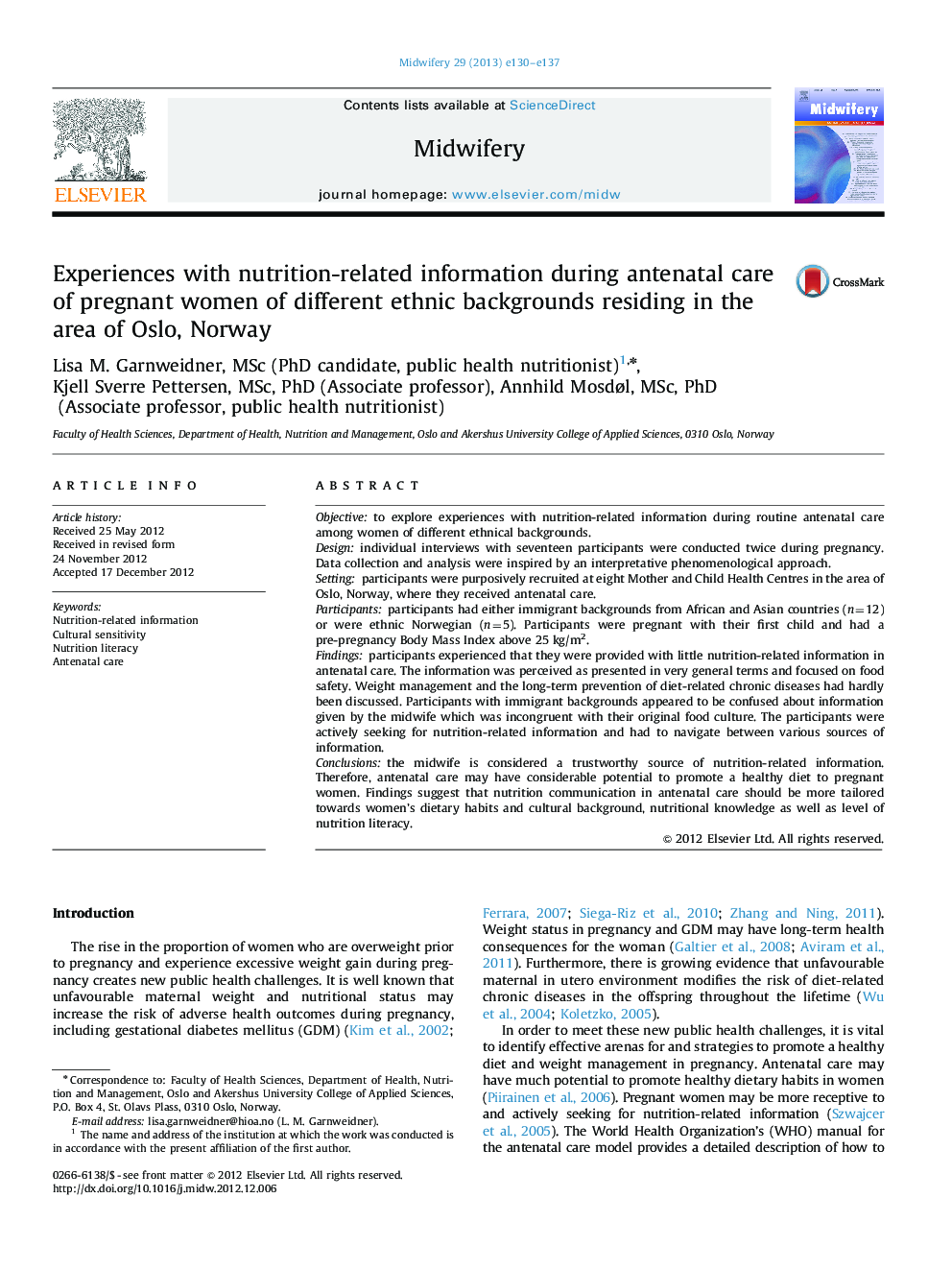| Article ID | Journal | Published Year | Pages | File Type |
|---|---|---|---|---|
| 1084652 | Midwifery | 2013 | 8 Pages |
Objectiveto explore experiences with nutrition-related information during routine antenatal care among women of different ethnical backgrounds.Designindividual interviews with seventeen participants were conducted twice during pregnancy. Data collection and analysis were inspired by an interpretative phenomenological approach.Settingparticipants were purposively recruited at eight Mother and Child Health Centres in the area of Oslo, Norway, where they received antenatal care.Participantsparticipants had either immigrant backgrounds from African and Asian countries (n=12) or were ethnic Norwegian (n=5). Participants were pregnant with their first child and had a pre-pregnancy Body Mass Index above 25 kg/m2.Findingsparticipants experienced that they were provided with little nutrition-related information in antenatal care. The information was perceived as presented in very general terms and focused on food safety. Weight management and the long-term prevention of diet-related chronic diseases had hardly been discussed. Participants with immigrant backgrounds appeared to be confused about information given by the midwife which was incongruent with their original food culture. The participants were actively seeking for nutrition-related information and had to navigate between various sources of information.Conclusionsthe midwife is considered a trustworthy source of nutrition-related information. Therefore, antenatal care may have considerable potential to promote a healthy diet to pregnant women. Findings suggest that nutrition communication in antenatal care should be more tailored towards women's dietary habits and cultural background, nutritional knowledge as well as level of nutrition literacy.
